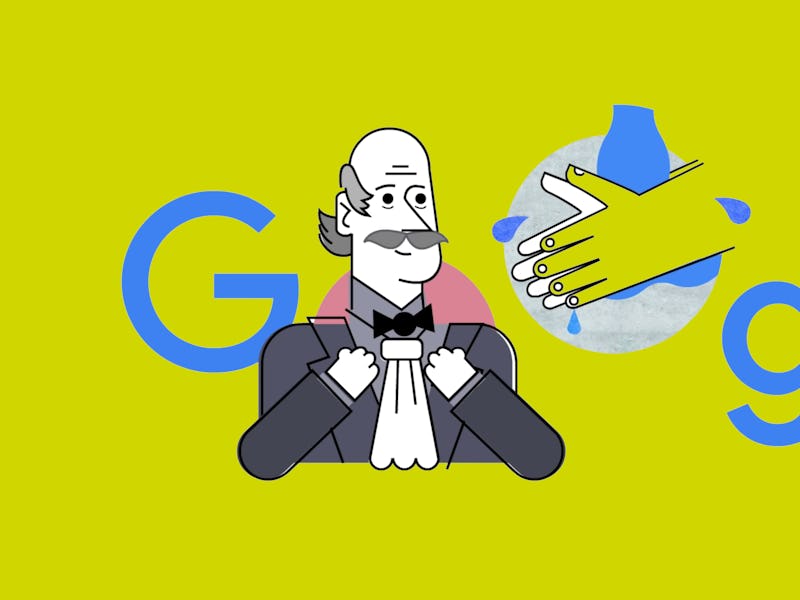Ignaz Semmelweis: Why the “father of infection control” is so important today
This rebel and pioneer changed public health with one lifesaving idea.

As we continue to fight COVID-19, it is more important than ever to wash your hands regularly.
To reinforce the point, in today’s Doodle Google honors Ignaz Semmelweis, the “father of infection control,” who first discovered the lifesaving power of clean hands.
Semmelweis was both a pioneer and a rebel. Despite facing serious push back from his contemporaries, the 1850s doctor laid the groundwork for modern public-health measures. It is thanks to him that we know that hand washing prevents disease.
Semmelweis died over a century ago, but his legacy started a hand washing revolution that continues today.
Semmelweis has helped prevent the deaths of millions of people from disease and infection — and provided us with one of the best tactics to fight COVID-19.
“Savior of mothers”
Born in 1818, the Hungarian physician discovered the medical benefits of hand washing while working in an obstetrics ward in a Vienna hospital.
Semmelweis noticed that women delivering babies with the help of physicians and medical students were more than up to three times more likely to develop a fever and die than women whose babies were delivered by midwives or midwife trainees.
The reason why is a little macabre, but telling. The hospital's doctors were rushing from case to case — which included handling corpses and performing autopsies — before delivering the babies, without washing their hands in between. As a result, they unwittingly carried germs, bacteria, and viruses from cadavers to their living patients, who later died of a disease they called "puerperal fever."
This infection-ridden environment is quite unlike a modern medical facility, which is cleaned intensively to ensure sterility. But back then, no one knew Grey's Anatomy's McDreamy’s compulsive “scrub in” habit was lifesaving.
Semmelweis instituted a hand-washing regimen for physicians and medical students in the obstetrics division, forcing them to disinfect their hands with a chlorinated lyme.
He also had staff wash medical instruments before and after procedures.
The mortality rate among mothers delivered by physicians plummeted to the same rate as the midwives.
Google honors the "father of infection" who laid the groundwork for modern hygiene practices.
Hand washing revolution
Even though patients survived because of Semmelweis’ foresight, the medical establishment of the time rejected his idea.
They did not renew Semmelweis’ contract at the hospital, and he ended up working in another hospital, where he advocated for the importance of clean hands, with limited success.
At the time, most scientists bought into the "miasma theory" — the idea that disease was caused by poisonous vapors, or "bad air."
Semmelweis spent the rest of his life struggling to get people to take his hygiene ideas seriously, a goal that wouldn't come to fruition until more than 20 years after his death.
Only after Louis Pasteur, Joseph Lister, and Robert Koch discovered the “germ theory" of disease did people start to make the connection between washing their hands and preventing illness.
Germ theory argues that disease is primarily caused by micro-organisms — germs, viruses, and bacteria — an idea that's been borne out by science for over a century.
Still, hand washing itself wouldn't become a mainstay of public-health promotion until the 1980s — and it was prompted by a crisis. After a wave of foodborne disease outbreaks and healthcare-associated infections hit the United States in the latter half of the 20th century, the United States Centers for Disease Control finally instituted the first national hand hygiene guidelines.
Today, it is almost unimaginable to think of surgeons cutting open patients without scrubbing their hands, or restaurant workers not washing up before preparing food.
Hand washing is arguably the most cost-effective, easily accessible tool to stay healthy and coronavirus-free.
Next time you wash up, scrubbing for at least 20 seconds with soap and warm water, you can thank Semmelweis.